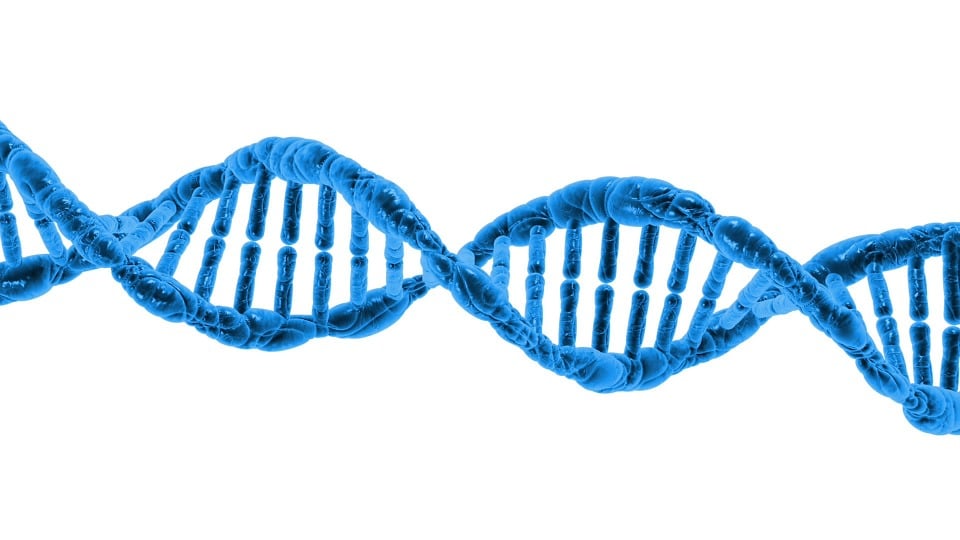Green Revolution 2.0: Unleashing the Power of Plant Biotechnology
Introduction
The Green Revolution of the mid-20th century marked a pivotal moment in agricultural history. It revolutionized food production in developing countries through the introduction of high-yielding varieties (HYVs) of staple crops, chemical fertilizers, and modern irrigation techniques. However, while this transformation contributed significantly to alleviating hunger in many parts of the world, it also raised concerns about environmental sustainability, ecological balance, and the socioeconomic impacts on smallholder farmers. Now, as we stand at the brink of a new era in agriculture, we find ourselves on the cusp of a second Green Revolution—Green Revolution 2.0—anchored in cutting-edge plant biotechnology.
The Need for a Second Green Revolution
Global Food Security
The world’s population is projected to reach approximately 9.7 billion by 2050, putting unprecedented pressure on food systems. The Food and Agriculture Organization (FAO) estimates that food production must increase by 70% to meet this demand. Traditional agricultural practices, while productive, face limitations in terms of land and water resources. As climate change exacerbates weather variability, droughts, floods, and extreme conditions become more frequent, threatening crop yields.
Environmental Sustainability
The first Green Revolution was not without its drawbacks. High-intensity farming practices led to soil degradation, loss of biodiversity, and the overuse of chemical inputs, contributing to pollution and ecological imbalance. The challenge lies in increasing food production without repeating the environmental mistakes of the past. Green Revolution 2.0 offers solutions through sustainable biotechnology that can enhance crop resilience, improve nutrient efficiency, and minimize environmental impact.
Plant Biotechnology: The Game Changer
Plant biotechnology encompasses a broad array of scientific techniques used to modify plants at the genetic level. These techniques can enhance desirable traits such as yield, disease resistance, drought tolerance, and nutrient content. Among the most prominent innovations in this category are genetic engineering, genome editing (notably CRISPR/Cas9), and marker-assisted selection.
Genetic Engineering
The advent of genetic engineering allowed scientists to insert genes from one organism into another, endowing crops with specific traits. For example, Bt cotton and Bt corn, modified to express a bacterium’s toxin harmful to certain pests, reduced the need for chemical pesticides, benefiting both farmers and the environment. The widespread acceptance and success of genetically modified organisms (GMOs) in countries like the United States and Brazil demonstrate the potential of this technology.
Genome Editing: CRISPR/Cas9
At the forefront of modern plant biotechnology is the CRISPR/Cas9 technology. This revolutionary genome-editing tool allows precise modifications to an organism’s DNA, enabling scientists to knock out undesirable traits or introduce beneficial ones with remarkable accuracy. For instance, researchers have used CRISPR to enhance wheat’s resistance to powdery mildew, improving yields while reducing the need for fungicides. This technology has the potential to create crops that can thrive in harsher climates, thereby ensuring food security amid changing environmental conditions.
Marker-Assisted Selection
Unlike genetic engineering, which involves directly altering an organism’s genetic code, marker-assisted selection utilizes genetic markers linked to desirable traits to accelerate traditional breeding methods. With this technique, breeders can select plants that possess specific genes for traits such as drought resistance or higher nutritional value without the lengthy process of cross-breeding. This approach combines the best of conventional breeding with modern technology, offering a way to increase breeding efficiency significantly.
The Role of Biotechnology in Sustainable Agriculture
Enhancing Crop Resilience
One of the most promising aspects of plant biotechnology is its capacity to enhance crop resilience against various abiotic and biotic stresses. Through genetic modifications, crops can be made more tolerant to environmental stressors such as drought, heat, and salinity. For instance, researchers have developed drought-tolerant maize varieties through genetic modifications that improve water usage efficiency. As climate change poses increasing threats to agriculture, these innovations will be crucial in safeguarding food supplies.
Reducing Chemical Inputs
One of the critical criticisms of the first Green Revolution was the dependency on chemical fertilizers and pesticides, which had harmful environmental impacts. By integrating biotechnology into agricultural practices, it is possible to develop crops that require fewer chemical inputs. Biotech crops engineered for pest resistance can significantly lower pesticide usage, reducing agricultural runoff and minimizing soil and water pollution. Furthermore, improved nutrient-use efficiency in genetically modified crops can decrease the reliance on synthetic fertilizers, leading to more sustainable farming practices.
Biofortification: Addressing Nutritional Deficiencies
Through the application of biotechnology, crops can be biofortified to enhance their nutritional content. This strategy aims to combat malnutrition by increasing the levels of essential vitamins and minerals in staple crops. A prime example is Golden Rice, genetically engineered to produce beta-carotene, a precursor to vitamin A. This rice has the potential to address vitamin A deficiency, a significant public health issue in many developing countries. The success of biofortified crops could have far-reaching implications for public health, particularly in areas where diverse diets are challenging to maintain.
The Social and Economic Implications
Empowering Smallholder Farmers
The Green Revolution 2.0 emphasizes inclusivity and equity, particularly for smallholder farmers who are often marginalized in global agriculture. By providing access to biotechnological advances, these farmers can enhance crop yields, ensure food security, and improve their economic situations. For example, the adoption of stress-tolerant crop varieties can help farmers withstand climate-induced adversities, ensuring livelihood stability. Education and support systems are vital in facilitating access to these technologies to truly empower smallholders.
Bridging the Gap: Technology Transfer
For Green Revolution 2.0 to achieve its goals, a systematic transfer of technology must occur, particularly to resource-limited regions where food insecurity is most pronounced. Developing countries require investments in research and infrastructure to access biotechnological advancements. International collaboration among governments, research institutions, and the private sector can foster environment conducive to innovation and application of biotechnology.
Addressing Ethical Concerns
While the promise of plant biotechnology is significant, ethical concerns surrounding GMOs and genetic modifications must not be overlooked. Public perception, regulatory frameworks, and labeling requirements continue to be contentious issues. To build trust among consumers, it is imperative that stakeholders engage in transparent discussions about the safety, benefits, and risks associated with biotechnological innovations. Ongoing public outreach and education campaigns will be essential to alleviate fears and misconceptions related to biotech crops.
The Global Landscape: Case Studies
India: A Success Story in Cotton
India’s experience with Bt cotton represents a notable case study in adopting biotechnology. After the introduction of Bt cotton in the early 2000s, the country witnessed significant increases in cotton yield, reducing the burden of pest-related losses. This success transformed India into one of the largest cotton producers in the world. However, the socio-economic implications were complex, highlighting the need for continuous support systems to ensure that the benefits extend to all farmers, especially smallholders.
Africa: Challenges and Opportunities
In Africa, the implementation of biotechnology faces various challenges, including regulatory hurdles, lack of infrastructure, and public skepticism. However, several African countries are exploring biotechnological approaches to address food insecurity and agricultural inefficiency. The African Union has emphasized the potential of biotechnology to enhance food security and foster sustainable development across the continent.
The Path Forward: Integrating Biotechnology with Agroecology
To harness the potential of Green Revolution 2.0, there must be an integrated approach that combines biotechnology with principles of agroecology. Agroecology promotes sustainability and resilience by advocating for diverse cropping systems, ecological farming practices, and local knowledge. By marrying the precision of biotechnology with the wisdom of agroecological principles, farmers can cultivate sustainable, resilient agricultural systems capable of thriving under changing conditions.
Conclusion
As we embark on Green Revolution 2.0, the role of plant biotechnology will be paramount in addressing the interconnected challenges of food security, environmental sustainability, and socio-economic equity. While the promise of biotechnology is immense, it is essential to navigate the ethical concerns and ensure that the benefits reach all stakeholders, particularly marginalized communities. The collaboration of governments, researchers, and farmers will be critical in shaping the future of agriculture, ensuring that it is both productive and sustainable for generations to come.
References
- Food and Agriculture Organization (FAO). (2023). "The Future of Food and Agriculture: Trends and Challenges." [FAO Report].
- Bhatia, A., & Kaur, A. (2022). "Emerging Trends in Plant Biotechnology: A Review." Journal of Agricultural Science, 10(4), 12-30.
- Kumar, V. et al. (2021). "CRISPR-Cas Technology: Applications in Crop Improvement." Plant Biotechnology Reports, 15(2), 213-226.
- International Food Policy Research Institute (IFPRI). (2022). "The Role of Biotechnology in Strengthening Food Security and Nutrition." [IFPRI Report].
- Hossain, M., & Thapa, G. B. (2020). "Socioeconomic Implications of Agricultural Biotechnology in Developing Countries." Agricultural Systems, 178, 102747.


























Add Comment